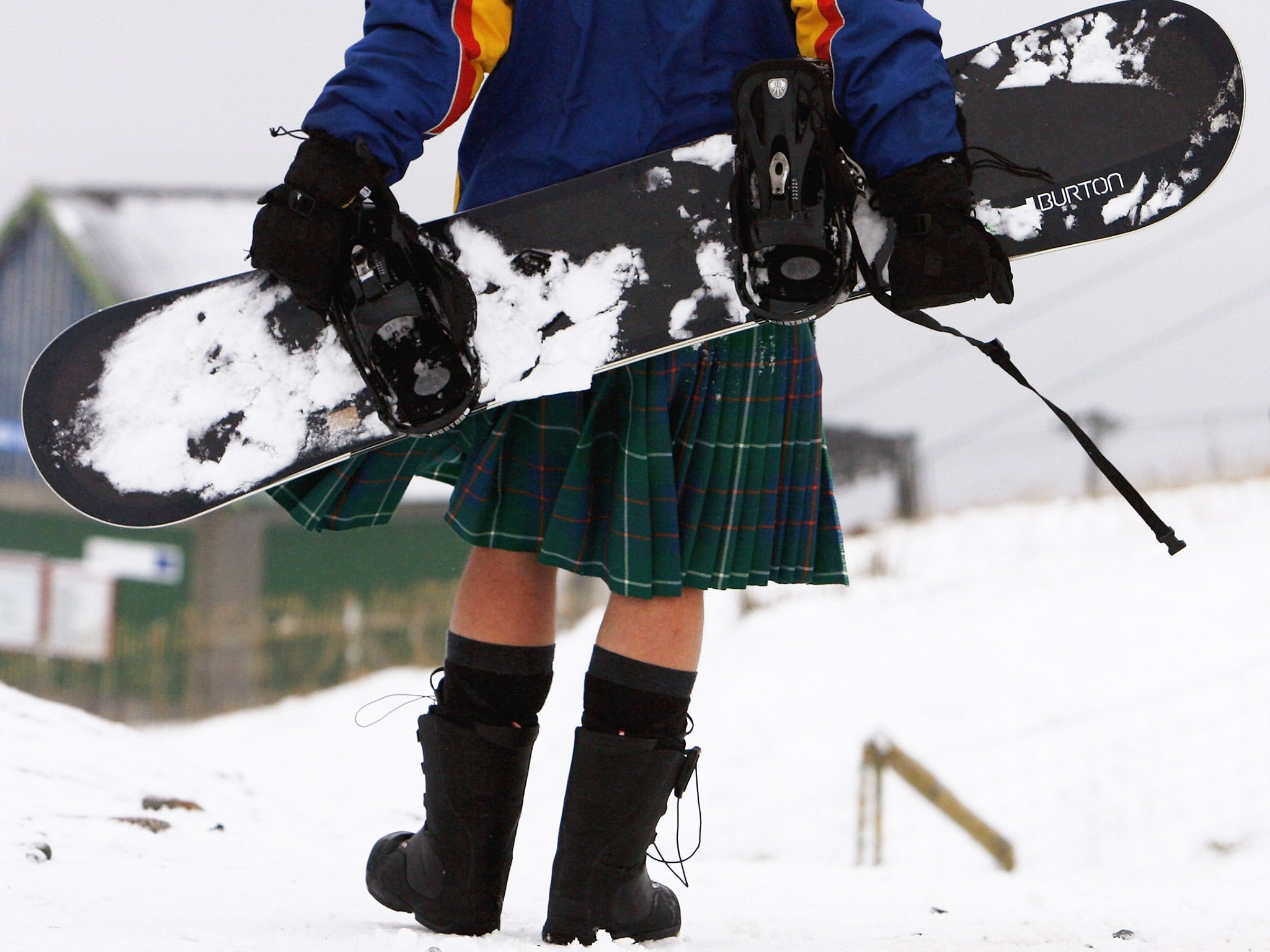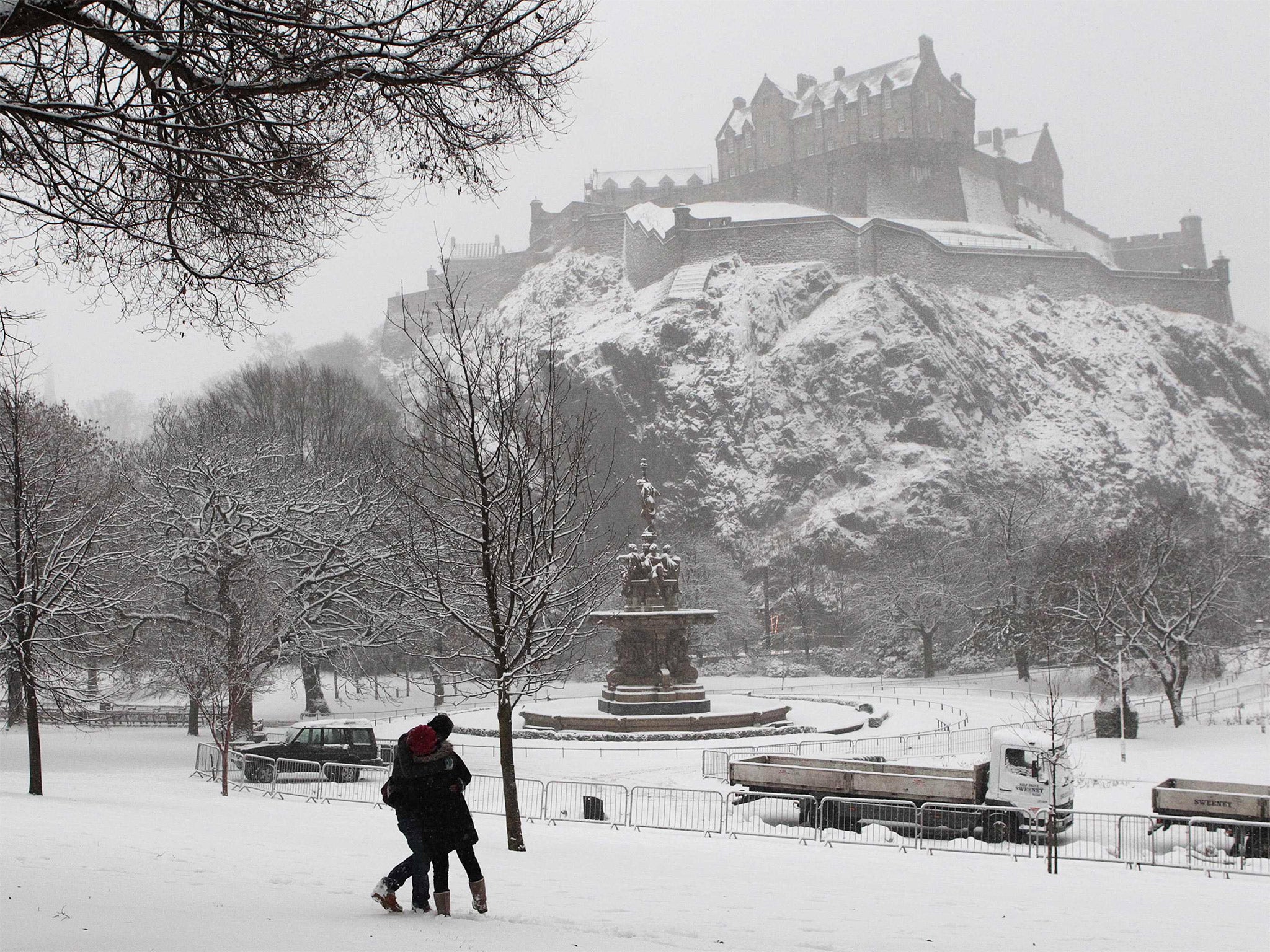Scots beat Inuits for having the most number of words for snow
The compendium is part of a project to bring together the roots of every Scots word into a thesaurus

Your support helps us to tell the story
From reproductive rights to climate change to Big Tech, The Independent is on the ground when the story is developing. Whether it's investigating the financials of Elon Musk's pro-Trump PAC or producing our latest documentary, 'The A Word', which shines a light on the American women fighting for reproductive rights, we know how important it is to parse out the facts from the messaging.
At such a critical moment in US history, we need reporters on the ground. Your donation allows us to keep sending journalists to speak to both sides of the story.
The Independent is trusted by Americans across the entire political spectrum. And unlike many other quality news outlets, we choose not to lock Americans out of our reporting and analysis with paywalls. We believe quality journalism should be available to everyone, paid for by those who can afford it.
Your support makes all the difference.For a land where snow is hardly is a winter rarity, it will come as little surprise that Scotland has several words for the cold white stuff that falls from skies stretching from Edinburgh to Lerwick.
But few might expect the list - from a “feefle” to a “feuchter”, and a “flindrikin” to a “blin-drift” - to amount to a grand total of 421 separate terms designed to describe everything from small flakes of wind-driven snow (“spitters”) to a ghostly figure in a blizzard (“snaw-ghast”).
The compendium, which shows that the Scottish comfortably out-compete the 100 or so words used by the Inuits for snow, is part of a project to bring together the roots of every Scots word into a thesaurus.
The online Scots Historical Thesaurus draws on forgotten words from archaic regional dialects of the Lowlands and the Northern Isles through to terms still used across Scotland today to attempt to record the full range of language used to describe daily life.
Initial research at the University of Glasgow has focused on two areas close to Scottish hearts - the weather and sport.

Dr Susan Rennie, a Scots specialist at the university, said: “Weather has been a vital part of people’s lives in Scotland for centuries. The number and variety of words in the language show how important it was for our ancestors to communicate about the weather, which could so easily affect their livelihoods.”
Researchers found that alongside myriad words for cloud and mist, loquacious climate-obsessed Scots have excelled down the ages at dreaming up ways to describe the minutiae of types of snow and the way in which it falls.
A seasoned aficionado would never mix up “flindrikin” (a slight snow shower) with a “blin-drift”, used to describe thick drifting snow. The white stuff can also “frog” (start to fall), “feefle” (swirl or twist around a corner) or “feuchter” (fall in slight flakes).
From “bled” to “scowder”, there are no fewer than 18 ways to describe the process of beginning to snow; six separate terms for a large flake (including a “flukra” and a “skelf”); and some 28 words for a thaw, among them “slag day” for when melted ice has turned the soil sticky or “slaggie”.
The study, which is encouraging Scots to offer their own words and definitions along with pictures to illustrate terms, also reveals the precision which was applied to climate-related language in Scotland, especially when it remained a largely agrarian society.
Among the terms catalogued by the thesaurus is a phrase used by the Shetland islanders, “brak da bruid”, describing the first person to walk of freshly-fallen snow.
Snow in Scots
* Snaw-pouther - fine driving snow
* Hielan thaw - rapid thaw followed by a snowstorm
* Moorkavie - to snow densely
* Kast de door - to pile snow against a door to stop it penetrating
* Hog reek - blinding or choking snow driven by a gale
* Snaw breaker - a sheep which breaks a way through snow for others to get food
Join our commenting forum
Join thought-provoking conversations, follow other Independent readers and see their replies
Comments